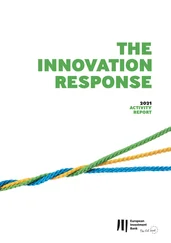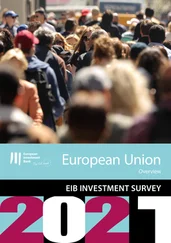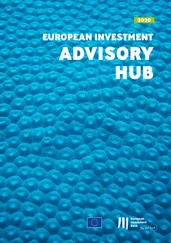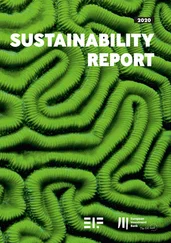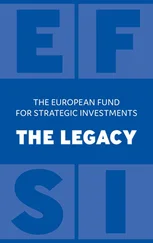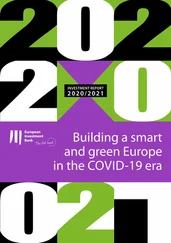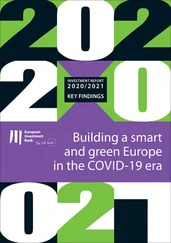By the end of 2021, we will stop supporting conventional fossil fuel projects, such as oil and natural gas production or traditional gas networks.
We will focus on:
•energy efficiency, such as building and home renovation, better road lighting and green transport
•energy supplies that don’t cause emissions, which will help Europe achieve its target of getting at least 32% of all energy from renewable sources
•electricity grids that connect new sources of low-carbon energy
•innovation in energy production, storage and use
The regions that are most dependent on fossil fuels need more support. Green energy projects will create hundreds of thousands of jobs, but we must pay special attention to regions where coal mines and other carbon-intensive industries employ large numbers of people and support the economy. We must foster training for new careers and give our backing to projects that attract new industries to these areas.
A climate-friendly energy policy can help society. In the European Union, 11% of the population is unable to heat their homes affordably. Millions of people struggle to pay their gas and electricity bills or heat their homes adequately. Older women suffer the most because they have lower incomes and spend more time at home. If we improve the energy efficiency of housing across the continent, this will cut emissions, lower energy bills and make lives better.
Similarly, clean urban transport projects provide affordable transport, but also improve the air and society’s health. Investments in climate-friendly farming in regions that don’t have a lot of water will reduce the risks of land becoming deserts and jobs moving away.
We must support green projects that help the world meet the Sustainable Development Goals.
Investing in the environment and in the fight against climate change can enhance people’s incomes, improve their living conditions and make sure they have enough food, clean water and sanitation.We can also lower the need to displace homes because of new hazards such as violent weather and flooding. We can reduce the number of people who are exposed to climate risks and vulnerable to poverty by between 62 million and 457 million worldwide.
We will invest in climate change mitigation projects that have a big impact on people. Small-scale, off-grid renewable energy, such as solar-kit homes in rural Africa, brings electricity to people who have never been connected to power lines. Climate change adaptation projects make bridges and roads stronger, so that they don’t wash away during storms and people can still travel to markets or the doctor or work.
We also need to give individuals the power to change. The EIB will continue investing in sectors that improve society, such as healthcare and education, and we will keep supporting women’s entrepreneurship and giving more people access to loans to launch a new idea or expand a business.
POLICY VOICES
THE GREEN THREAD
How the European Investment Bank is responding to policy developments in the climate crisis
I am particularly happy with the progress [the European Investment Bank] has made to strengthen its role as the EU climate bank. This will boost investment in European technologies and the solutions the world is looking for.
Ursula von der Leyen, President of the European Commission
To achieve the ambition set by the European Green Deal, there are significant investment needs. We will only be able to meet these investment needs if we mobilise both the public and private sectors. In this regard, the EIB will be a main partner, acting as a pool and magnifier of public investments and as an extra security for private investments.
Frans Timmermans, Vice-President of the European Commission
Climate and environmental sustainability have long been a priority for the European Investment Bank, but in the face of the unprecedented climate crisis and the massive investment required for the transition to a carbon-neutral society we know that business-as-usual is not an option. That is why we have committed to scale up our climate and environment financing to support €1 trillion of investments for these objectives in the next decade. This makes the EIB central to the implementation of the European Green Deal. We are ready to live up to the challenge.
Emma Navarro, Vice-President responsible for climate action, EIB
The European Investment Bank has championed climate action already for quite some time. Climate lending accounted for 31% of the Group’s total financing volume in 2019. The Climate Bank Roadmap is currently on the drawing board and work on this will help us refocus our efforts to boost climate lending still more. In the coming year, the Bank will strengthen its engagement in projects contributing to the decarbonisation of industries and transport, climate-related innovation and energy efficiency. To be impactful, the Bank needs to employ new, innovative ways of addressing market needs and achieving policy objectives.
Elina Kamenitzer, head of Division, Climate Office, Operations, EIB
I would like the term “climate lending” to be understood as sufficiently broad to cover financial instruments dedicated to various parts of the human environment, both natural and social. That means lending towards sustainable development, which of course would include protection of the natural environment, climate adaptation and mitigation – but also the development of education, healthcare and other elements of social infrastructure. This is of particular importance in less developed countries, which see obstacles to their sustainable development coming from various directions and are badly in need of a comprehensive financial toolbox, assisting them on many fronts.
Rafal Rybacki, head of division, EU Neighbouring Countries, East and Central Asia Public Sector, Operations, EIB
Climate-related investments will be increasingly important across all sectors and geographies in order to achieve the very challenging 2030 and 2050 objectives. In the last few years, we have already supported decarbonisation efforts by European utilities and fostered the deployment of renewables and the equipment and infrastructure that facilitate it, targeting all technologies and market structures. In the years to come, the European Investment Bank will need to increase its ambition and adapt its financing offer, in order to facilitate the transformation of a wide array of sectors, notably more energy-intensive ones. In addition, the Bank will need to play a key role in those market segments where new innovative technological and financial solutions need to be put in place, such as energy efficiency or renewables. To this end, we can build upon our strong expertise and be ready to respond quickly to market needs and promoters’ expectations that we assume the role as an incubator or anchor financier – as the case may be – able to catalyse other financing sources.
Birthe Bruhn-Leon, director, Iberia, Operations, EIB
On the way to achieving our new targets on climate and environmental sustainability by 2025, we will have to engage more with our clients and key stakeholders to identify new opportunities. This will mean increasing what we do well and developing new projects and products where we have not been as strong. I would expect to see an increased focus on energy efficiency and adaptation, given the high investment needs in both sectors. New products, such as green loans and blended finance instruments to mobilise private investment, should also play a bigger role.
Читать дальше



